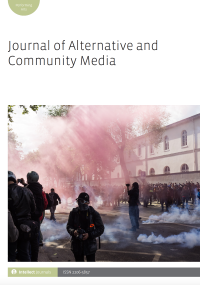
Full text loading...

This interdisciplinary study reconsiders nineteenth-century English newspaper editor George Jacob Holyoake’s paradoxical legacy. Drawing on Gramscian cultural hegemony theory, the study demonstrates Holyoake’s use of press activism to win liberal reforms, culturally empower the working class and articulate Owenist-socialism’s evolving counter-hegemony. In particular, it shows that his editorial agitations laid important discursive foundations for secularism, freedom of the radical press and the co-operative movement. Although Holyoake is frequently celebrated by secularists and co-operators alike for his leading role in their movements’ historic take-off, this article argues his alternative journalism decisively underwrote those campaigns. Against clerical, capitalist and repressive state power, his editorial labour thereby shaped the emergent, oppositional culture that transformed a pre-democratic Britain. Although Holyoake’s multiplex legacy has overshadowed his alternative journalism’s importance, this article thus illuminates his neglected role as an ‘organic intellectual’ of the English working class, an ‘integral journalist’ and an alternative media pioneer.

Article metrics loading...

Full text loading...
References


Publication Date:
https://doi.org/10.1386/jacm_00103_1 Published content will be available immediately after check-out or when it is released in case of a pre-order. Please make sure to be logged in to see all available purchase options.